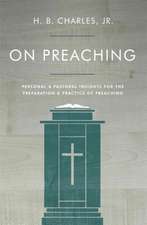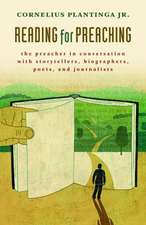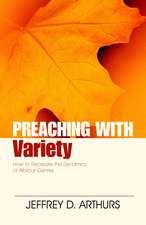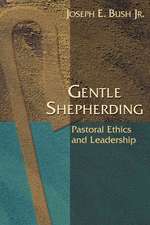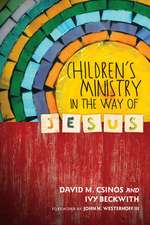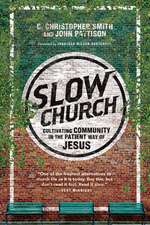Creative Creatures: Values and Ethical Issues in Theology, Science and Technology: Issues in Science and Theology
Autor Ulf Görman, Willem Drees, Hubert Meisingeren Limba Engleză Paperback – 29 dec 2005
Preț: 535.43 lei
Preț vechi: 686.72 lei
-22% Nou
Puncte Express: 803
Preț estimativ în valută:
102.46€ • 106.33$ • 85.64£
102.46€ • 106.33$ • 85.64£
Carte tipărită la comandă
Livrare economică 17-31 martie
Preluare comenzi: 021 569.72.76
Specificații
ISBN-13: 9780567030894
ISBN-10: 056703089X
Pagini: 206
Dimensiuni: 138 x 216 x 17 mm
Greutate: 0.27 kg
Editura: Bloomsbury Publishing
Colecția T&T Clark
Seria Issues in Science and Theology
Locul publicării:London, United Kingdom
ISBN-10: 056703089X
Pagini: 206
Dimensiuni: 138 x 216 x 17 mm
Greutate: 0.27 kg
Editura: Bloomsbury Publishing
Colecția T&T Clark
Seria Issues in Science and Theology
Locul publicării:London, United Kingdom
Cuprins
Preface and Acknowledgements List of Contributors 1.Introduction: Technological and Moral Creatures or Creators? Willem B. Drees, University of Leiden, the Netherlands PART I: TECHNOLOGY'S IMPACT ON OUR WORLDVIEW 2.ICT and the Character of Finitude RenT P.H. Munnik, University of Twente, the Netherlands 3.Technology and the Changing Notion of Nature Zbigniew Liana, The Pontifical Academy of Theology, Cracow, Poland 4.Co-creator or co-creator: The Problem with Artificial Intelligence Noreen Herzfeld, St. John's University, Collegeville, MN, USA 5.From Thou to IT: Information Technology from the Perspective of the Language Philosophy of Rosenzweig and Rosenstock-Huessy Otto Kroesen, Delft University of Technology, the Netherlands 6.Being Cyborgs: On Creating Humanity in a Created World of Technology Taede Smedes, University of Leiden, the Netherlands PART II: MORALITY, NATURE, AND CULTURE 7.The Perennial Debate about Human Goodness: The Primate Evidence Frans B.M. de Waal, Emory University, Atlanta, USA 8.Theological Reflections on the Moral Nature of Nature Nancey Murphy, Fuller Theological Seminary, Pasadena, CA, USA 9.Is it Suitable to Translate Christian Anthropological Topics into Genetic and Cognitive Categories? The Case of Original Sin Llufs Oviedo, Pontifical Ateneum Antonianum, Rome, Italy PART III: MORALITY IN A TECHNOLOGICAL SOCIETY 10.Ethical Issues of AI and Biotechnology Margaret A. Boden, University of Sussex, Brighton, UK 11.Co-creation or Hubris? Responses to Biotechnology in Christianity, Judaism, and Islam Ulf G÷rman, Lund University, Sweden 12.The Human being a Co-Creator? Theological Reflections on Reproductive Cloning of Human Individuals Jan-Olav Henriksen, The Norwegian Lutheran School of Theology, Oslo, Norway 13.When Astronomers and Environmentalists Clash Over a Sky Island Christopher J. Corbally, SJ, The Vatican Observatory, Rome, Italy, and University of Arizona, Tucson, AZ, USA 14.The Crisis of Ideologies and the Need for a New Anthropology: Values Education in a Technological and Pragmatic Age Angela Roothaan, The Free University of Amsterdam, the Netherlands Index
Recenzii
"This is a well-written book which features short essays on some of the most important contemporary issues in science and technology, and religion."
"This is a collection of 14 informative and provocative papers."Theology, November 2008
'The essays were revised in order to create a carefully focused volume, and the editors have done well in producing a tightly knit book, well worthy of review by participants in the ongoing theology and science dialogue.'
"This is a collection of 14 informative and provocative papers."Theology, November 2008
'The essays were revised in order to create a carefully focused volume, and the editors have done well in producing a tightly knit book, well worthy of review by participants in the ongoing theology and science dialogue.'






